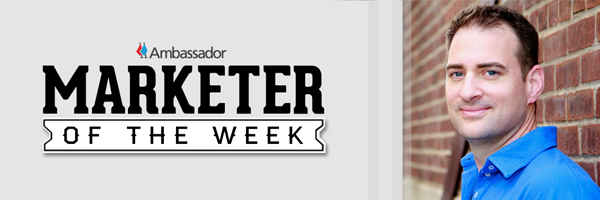
Jon Henshaw isn’t exactly sure how he got here — an SEO expert with a background in human development and a master’s degree in counseling psychology. Oh, not to mention he’s a wild-eyed entrepreneur and co-founder of Nashville-based online marketing platform Raven. So how did he get here? How did he become an expert in search engine marketing? The same way anybody gets anywhere these days—pretty much by accident.
Seven years after founding Raven, Jon has some sharp ideas about humans, robots, and the delicate art of search engine optimization.
AMB: Did you come into SEO at the very beginning? Was it very well known when you first got started?
JH: I wouldn’t say the very beginning. I’m going to put myself in the middle tier. I was second generation, and now we’re moving into the third generation where everybody knows about it and has some idea of how to do it.
Seven years ago when I moved to Nashville and was promoting SEO, most web designers here thought I was nuts. Nashville is a very design-centric town, and at the time Flash was still heavily used. It took several years before they started to wake up and say, “Oh, I have to do this. If I don’t optimize my site, I’m not going to get any business.”
AMB: How should ecommerce businesses be thinking about SEO?
JH: When you think of ecommerce from a traditional standpoint, you’ve got to spend money to make money. For example, you have to spend money on advertisements and other ways to promote your products. I think most ecommerce sites are used to paying for any type of attention they get.
But when I approach ecommerce as an SEO, and also as someone who does social media marketing, my main focus is on how I can bring the most attention to my site without paying for it. My ultimate goal is to get free traffic from either organic search results or social sharing.
Whenever I look at an ecommerce site that’s not focused on optimizing their site for search engines, all I see is money left on the table. That’s more money they have to spend on advertising to get people to view their site or know about their products. If you’re not focused on making your site faster, making your product pages better, making your URLs search engine friendly, then you’re basically leaving money on the table.
AMB: What are common SEO problems you see in the ecommerce world?
JH: I think the most common problem is poor category structure. Search engines care about how you set up your URLs and how you categorize your products. Lots of ecommerce sites use very archaic content or product management systems. The URLs are either gibberish, or they’re not category centric, or they’re just random.
One of the biggest rules with SEO is to help the robot. Whatever you can do to make it clear for the search bots, to spell it out for them, you should be doing it. Search engines look at the URL naming convention, and they can use that to help categorize your products. If you’re an ecommerce site that doesn’t use a good URL system, then Google may not know how to best categorize your products, which will ultimately hurt your site’s performance.
Anytime I’ve seen an ecommerce site optimized correctly, they almost always see an immediate boost in organic traffic.
AMB: Do you think your background in counseling affects the way you think as a marketer?
JH: I think it helps me understand the user better—what they’re really looking for, what will please them, what will annoy them. If you think from a psychological point of view, people want to be entertained. They want you to engage with them. And if you engage with them in just the right way, they’ll fall in love with you. You’ll get repeat business, but you’ll also get word of mouth—both from one-on-one traditional sharing and from social sharing, which is the best kind. Something can go viral instantly if the conditions are right and the product is right.
AMB: Is there a way for online marketers to please both humans (users) and robots (search engines)?
JH: Well, that’s up to the marketer. SEO is a science and an art. You have to write content that targets certain keyword phrases but is still interesting to the reader. You have to write interesting headlines, create high-quality content, and yet, at the same time you have to say exactly what the Googlebot wants to hear. That’s the art of it. It’s something you can’t automate. It comes down to experience and testing and trying different things, then looking at your analytics and seeing what works, what converts, and what drives the most organic traffic.